“I felt like such a lousy wife”: Spouse of former Sports Hub COO when he battled insomnia and depression
Text by Juliette Leong, Interview by Gemma Koh // June 25, 2024, 4:01 pm
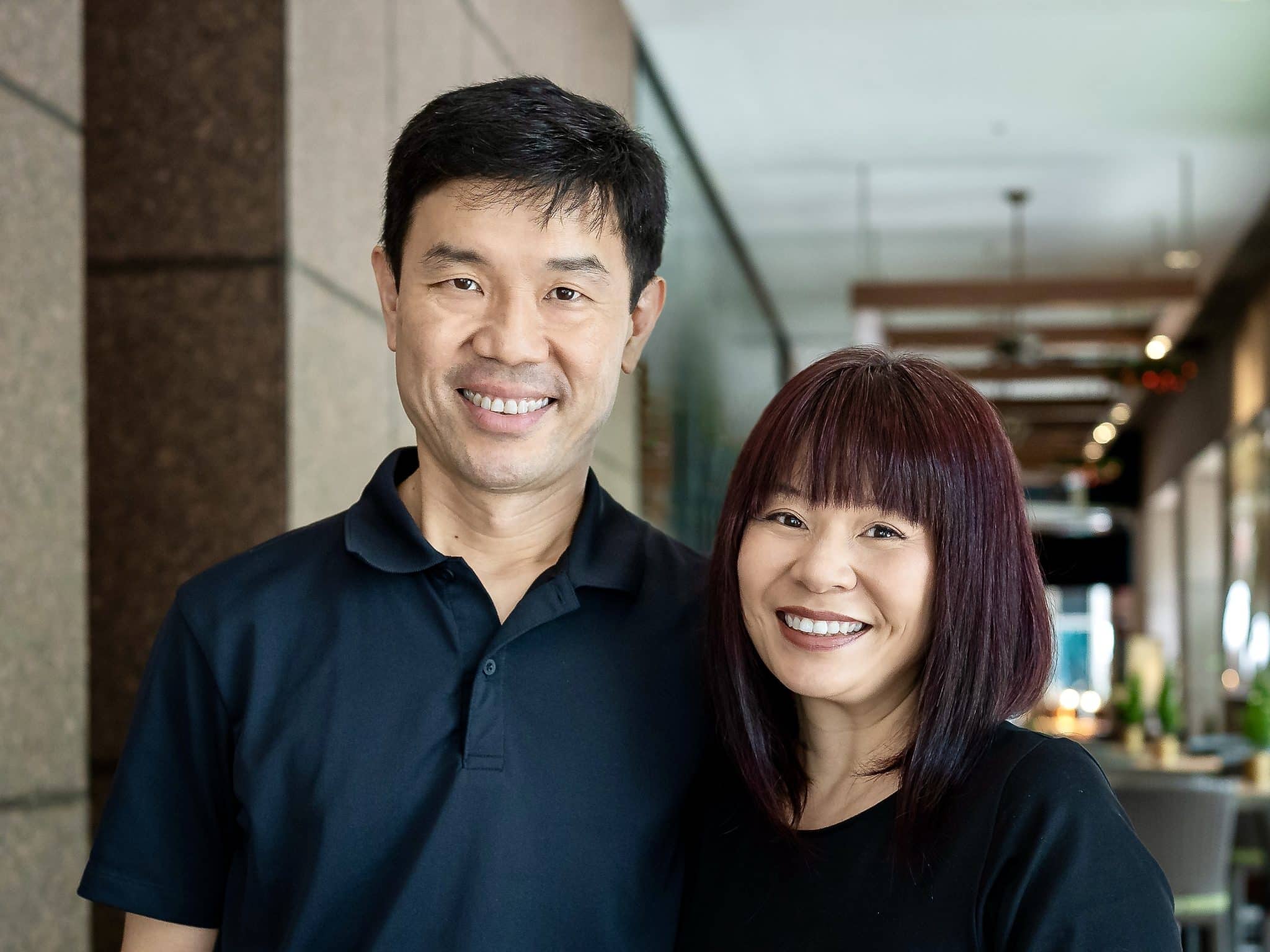
Depression doesn't happen to Type A high achievers like us, thought actor and corporate coach Sharon Mah, who initially didn't know what to do when her husband struggled with insomnia and mental health issues. All photos courtesy of the Pohs.
The insomnia started when the couple had just returned home from a holiday in the United Kingdom in July 2013.
Poh Yu Khing would wake up in the middle of the night, his mind spinning uncontrollably with things that needed to be done, solutions and contingency plans for the construction of the $1.33 billion project he was helming.

Yu Khing in 2013 during the construction of the 55,000-seater National Stadium. The crown jewel of the Sports Hub is the largest free-standing dome in the world.
Yu Khing, who shared his story with Salt&Light in 2021, was then the Chief Operating Officer (COO) of the Singapore Sports Hub. It was just under a year before the slated grand opening. A delay in its construction would result in a loss of millions of dollars in revenue.
His wife, Sharon Mah, would wake up in the morning to find her husband in the living room sitting by himself or at his computer. “I dreaded every morning, wondering if he managed to get more sleep.”
Now 49, she recounted: “Four months later, after surviving on just two to three hours of sleep every day, he was so exhausted. His whole countenance changed.”
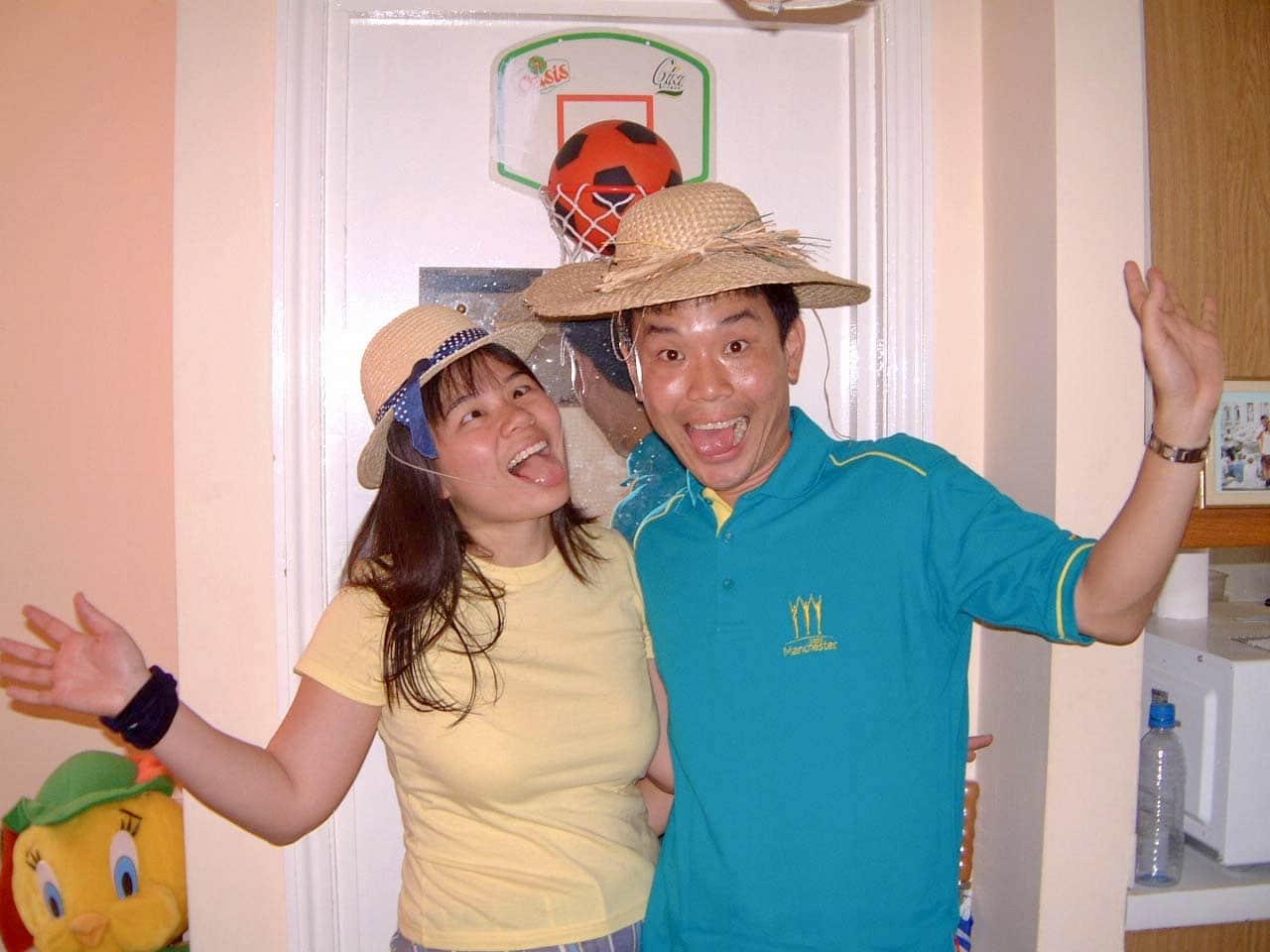
“He was my loudest cheerleader, the one who’s supported every crazy adventure I pursued, the king of bumper sticker positivity,” Sharon later told an audience through her musical monologue, Nearly Normal. They are pictured during their dating days in 2001.
One day when he was in the car, Yu Khing repeatedly hit and smashed the door to express his frustration with himself.
“Usually, he’s very even-tempered and has a very high level of self-management. I’d never seen him lose control like that.
“It was frightening to see this man that I married become a different person,” said Sharon, a freelance corporate coach and facilitator, and an actor.
Subsequently, when he spiralled into depression, Yu Khing lost interest in all the things he once loved, like playing the guitar and running.

Sharon (left) used to be a lead vocalist in a band with Yu Khing (right).
Sharon said: “He would not do anything. We would just sit around. The only person he was comfortable with was me. So I was the one who was with him all the time.”
Downplaying it
Both husband and wife initially tried to downplay the severity of the situation.
“People like us don’t get depression,” Sharon thought. “It doesn’t happen to Type A high achievers, high-capacity people who can handle anything, people who can be trusted to get things done.”
She thought that this was just something he would snap out of.
“And if Yu Khing were indeed facing a more serious problem, we’re not the kind of people who would need to go to psychologists or psychiatrists,” she recalled thinking.
But one night Yu Khing was so distraught, he wept.
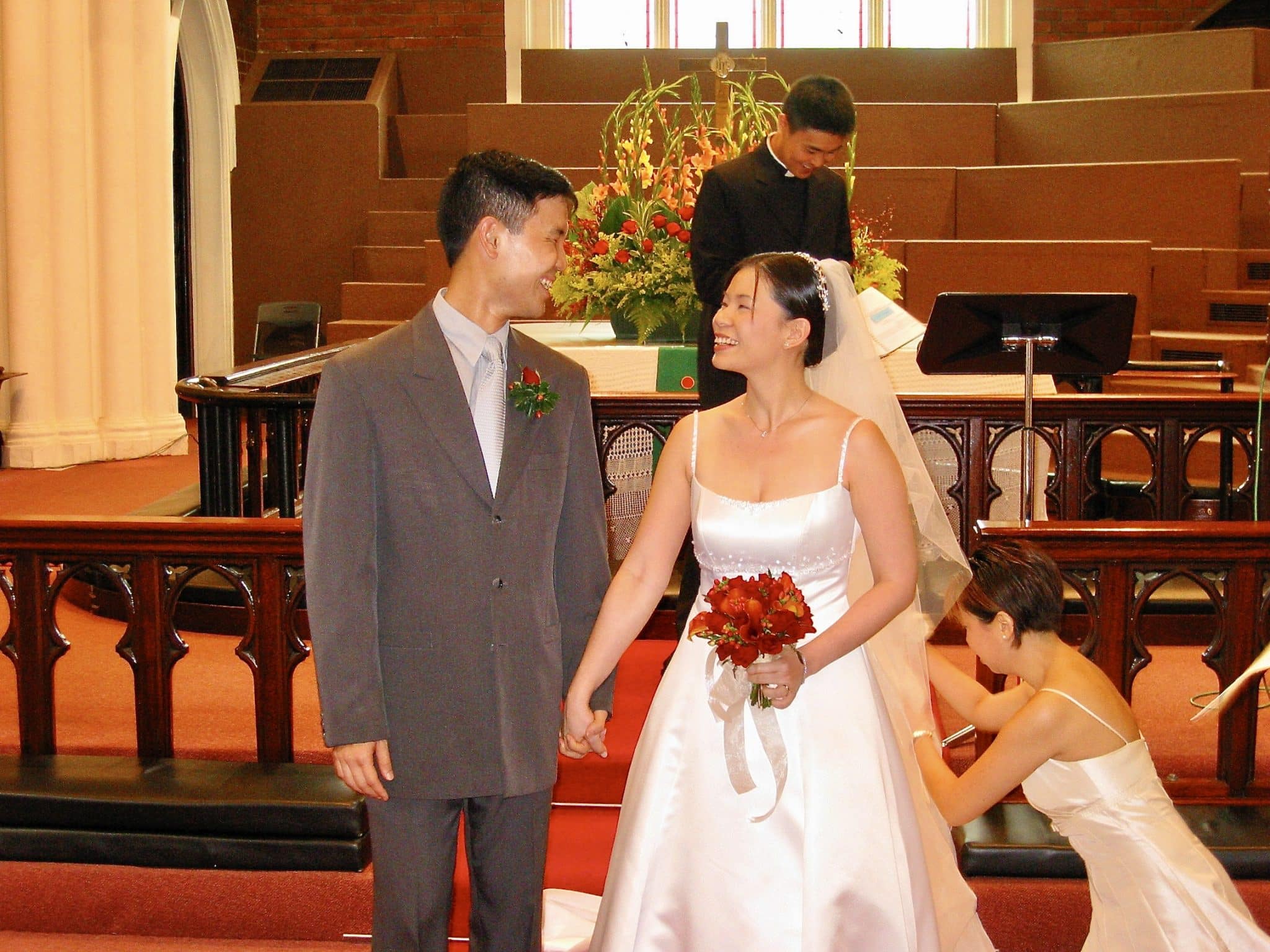
Sharon and Yu Khing promised to be together “for better for worse, in sickness and in health” in 2004.
“As he sobbed, he told me, ‘I just want this (insomnia) to stop. I’m so sorry Baby, that you have to go through this with me’,” she said.
“That was the moment our marriage vows got real.”
“Shut up! Shut up!”
Sharon struggled to watch her husband – “a high-flying professional who always excelled and wowed the bosses” – spiral.
“It scared me because in our marriage, he was the one who would lead. He would know exactly what to do. He would be the decisive one. And when this happened, the roles were reversed.
“As the wife, you feel like you are supposed to be his helper and not make things worse.”
“I felt like such a lousy wife because I didn’t know what to say, what to do.”
She thought that going away for a time of silence and solitude would help. So she checked them into Changi Cove for a three-day, two-night retreat at the end of 2013.
“In hindsight, silence and solitude was the worst possible thing to give a person who could not control his thoughts,” said Sharon.
“I woke up on the first night to find my dear husband pacing up and down the room telling himself ‘Shut up! Shut up! Shut up!’” she said, mimicking how he had repeatedly jabbed his finger to his temple.
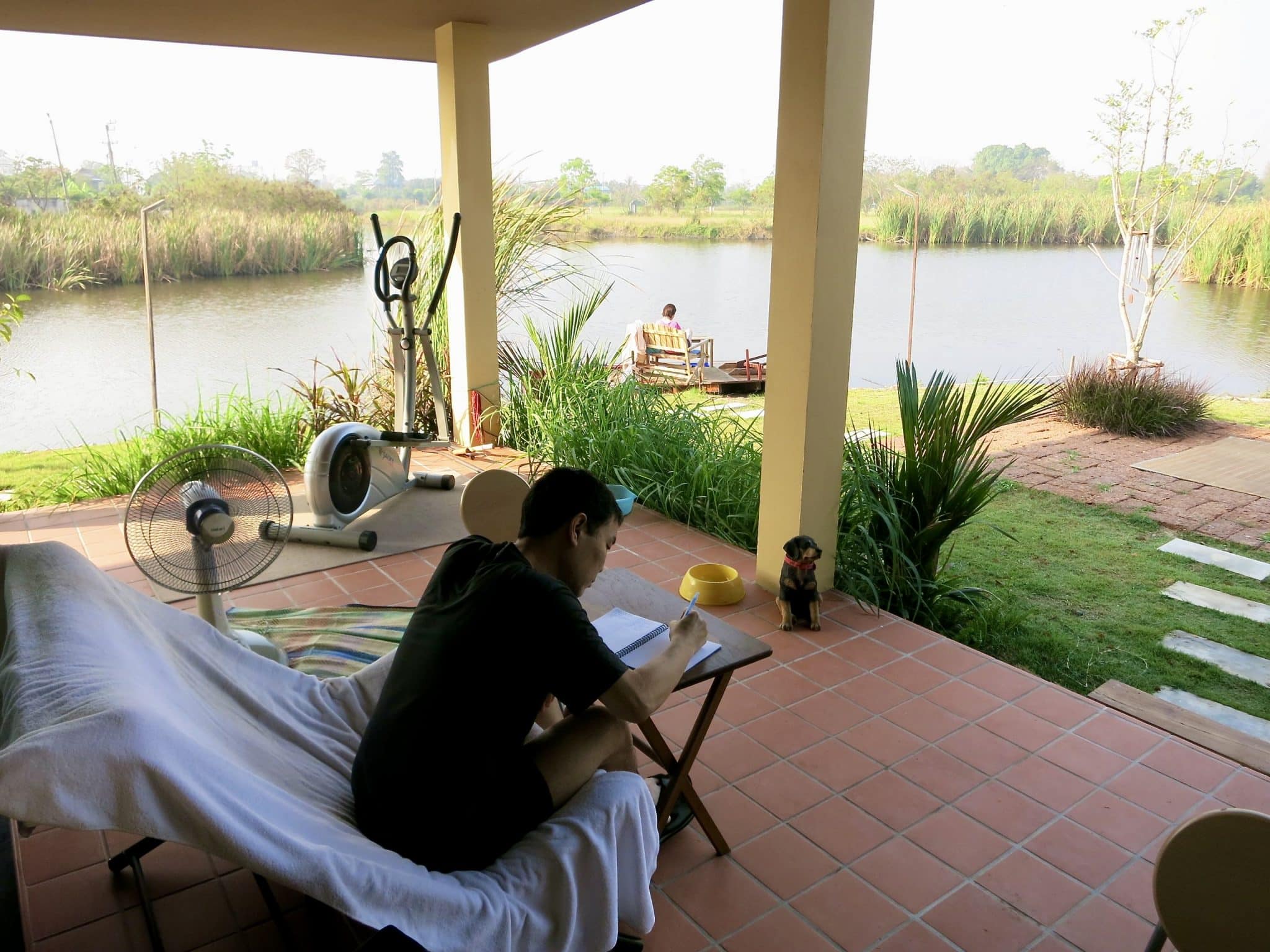
The couple retreated to Bangkok two weeks later, staying with a trusted pastor friend and his family who watched over them. “Khing’s chats with the pastor helped him make sense of what was going on, while I could spend time on my own without worrying about him,” said Sharon.
“At that moment, I got up, held him, pulled him back to bed and started praying aloud over him.”
She read verses from the book of Psalms until he quietened down and was able to sleep.
“As the wife, you feel responsible. You feel like you are supposed to be his helper and not make things worse’,” she admitted.
But the praying seemed to help.
“Sometimes I prayed aloud to him, just so he hears God’s promises instead of his worries.
“So I kept praying … like a broken record,” she told the audience in the musical monologue, Nearly Normal, she later wrote and performed in 2018.
A hanged blue screen
After trying everything, the couple sought medical help from a general practitioner.
He was a close friend – a “God-send” who was always available to answer their questions and concerns. He advised Yu Khing to see a psychiatrist for medication.
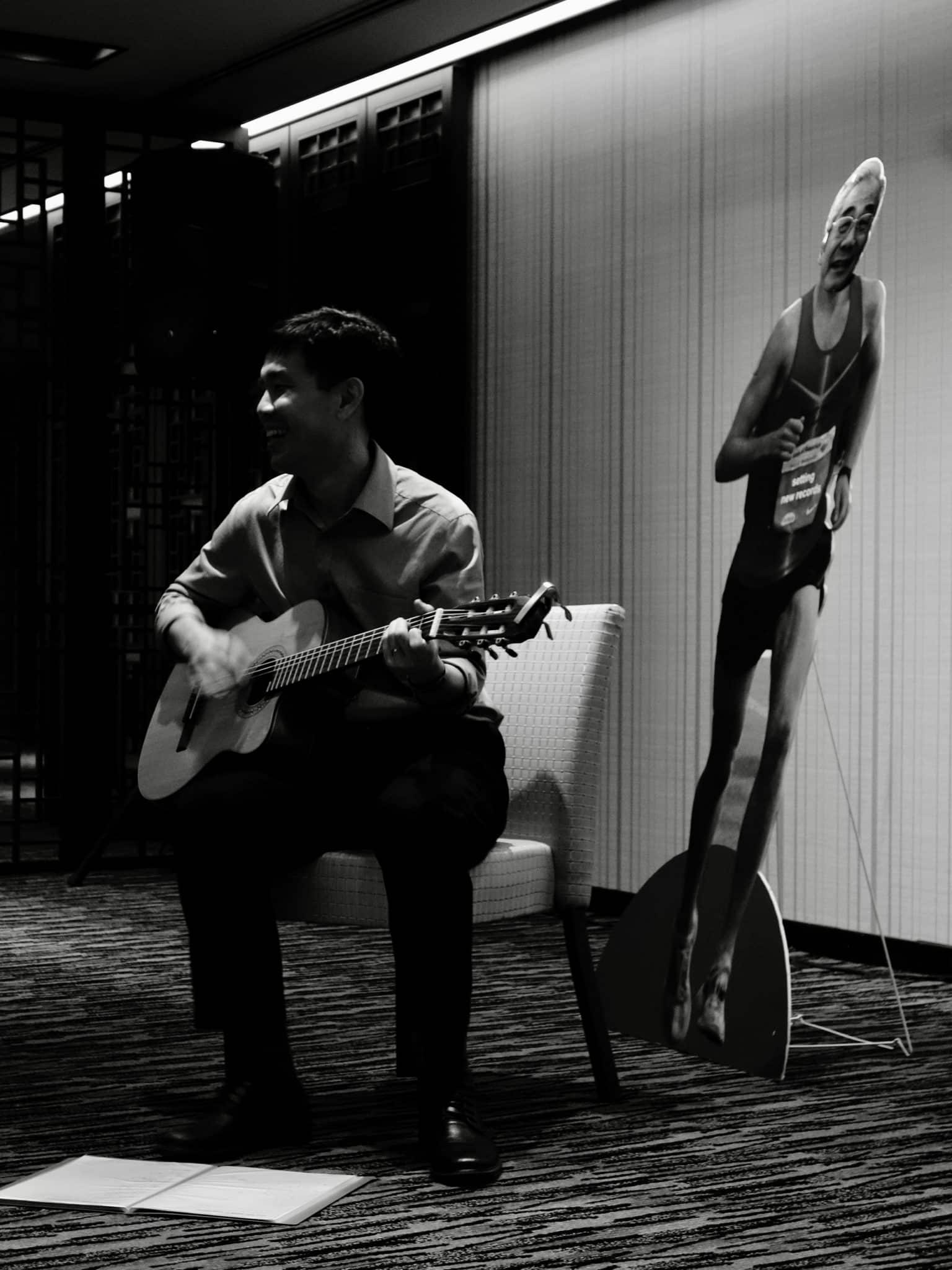
Yu Khing playing the guitar at a family member’s birthday party in October 2013, around the time he sought help from the psychiatrist. “We were still trying to carry on as per normal and turning up for important family events, but it was tough,” admitted Sharon.
Their GP also put Yu Khing on two months of enforced medical leave. This was to remove him from the stress trigger – his work – in hope of restoring his normal sleeping patterns.
“He was in danger of becoming like a computer going into a blue screen when it hangs.”
At that point, Yu Khing had tried three different types of sleeping pills, each of increasing potency. “Even after taking the most powerful one, he was still waking up after two hours. He was freaking out,” said Sharon.
“Our GP said that if Yu Khing didn’t stop work, he was in danger of becoming like a computer going into a blue screen when it hangs. And they wouldn’t know what it would take to bring him back to normal.”
However, the break from work gave Yu Khing more anxiety than rest. He worried: “Would the construction of the Hub go smoothly? Would I be fired, having taken significant time off just before its opening? If so, would I be able to find another job?”
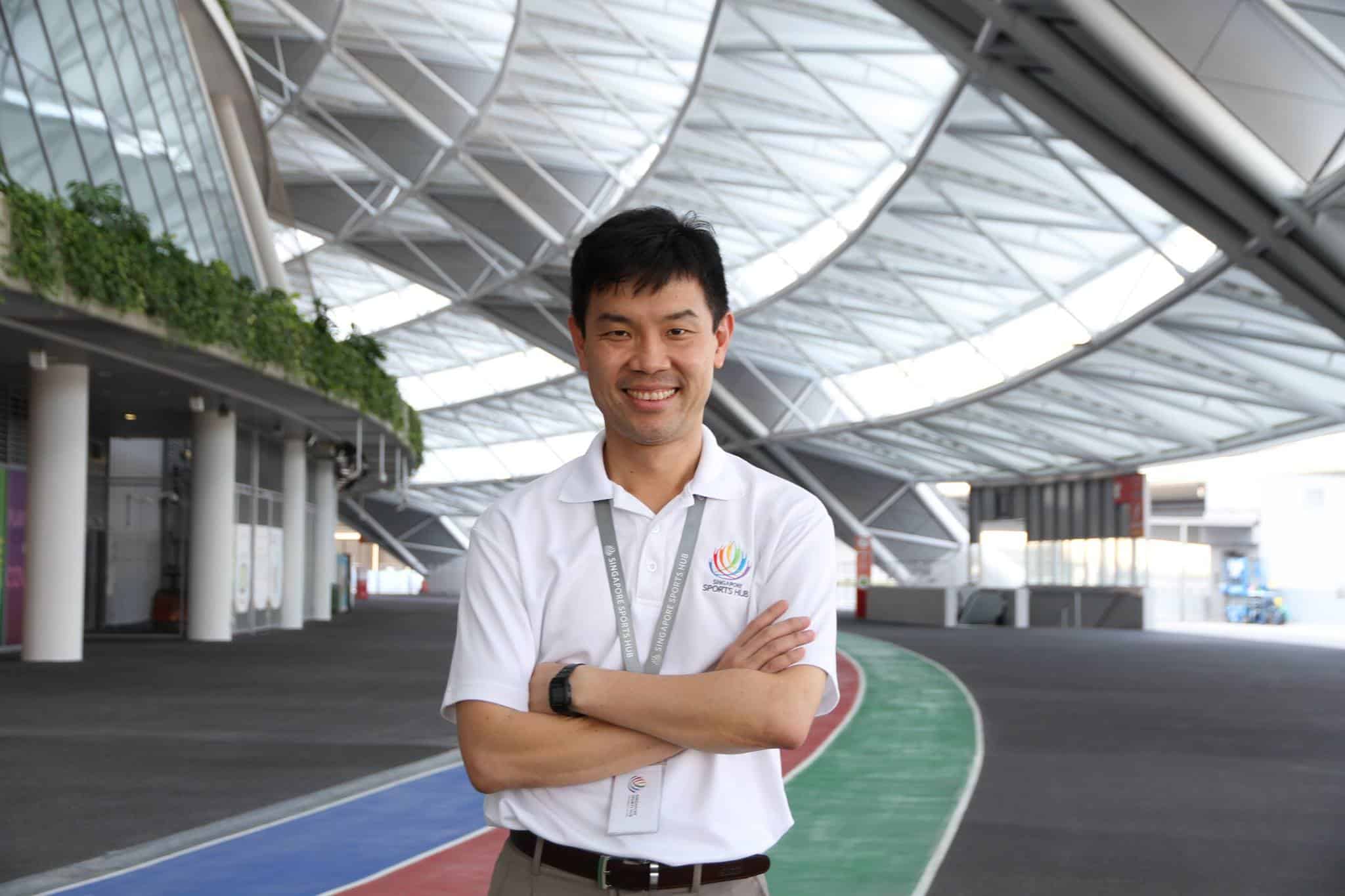
After regular visits to a psychologist, and with the support of his wife and church friends, Yu Khing got better and was able to return to work. In 2015, he left the Hub he had been working on for 13 years.
Stressed over the potential loss of his job and financial security, he sank into depression. He was prescribed anti-anxiety medication, as well as anti-depressants.
Sharon worried about her husband, but she did her best not to show her anxiety in front of Yu Khing. “I wouldn’t cry,” she recalled.
One thing she knew: “I always needed to be his safe space to do whatever he needed. I needed to be the calm one. I learnt to exercise a lot of self-restraint in front of him.”
Her only safety valve
Both husband and wife recognised that Sharon needed her own space if she was to care for him.
“We had good friends who showed up sometimes unannounced at our door just when I was feeling overwhelmed. It was very helpful” said Sharon, seeing God’s hand in the timing.
They would take Yu Khing to hang out at their home so that Sharon could go off and spend time with her girl friends.
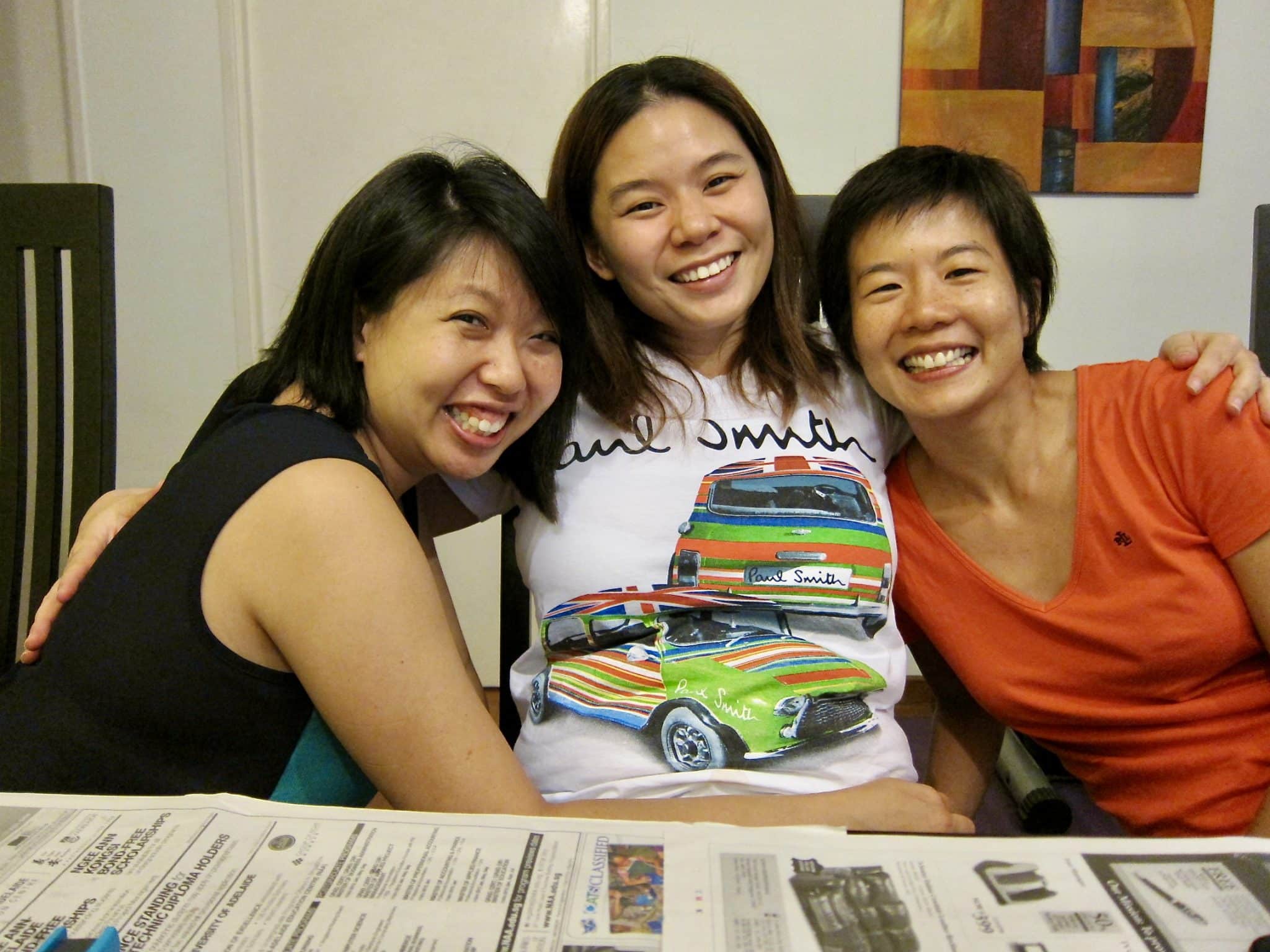
“Karen (right) hangs on to me until I stop sobbing. I’m on the couch at Elaine’s (left), watching her do housework until I nod off, exhausted,” said Sharon of her best friends, in musical monologue Nearly Normal.
“Sometimes we would talk and pray. But often, my girl friends would just sit with me and let me cry and cry and cry,” she said.
“It was my only safety valve to collapse and not have to try to hold things together. Often, I would drift off to sleep, and they would let me sleep.”
A secret club
Sharon also found unexpected solace in her church community.
During Yu Khing’s affliction, she often asked herself if there was a reason behind their suffering: “Is there a secret sin that I haven’t confessed? Is there something that he did wrong? Is it because I’m not having enough faith? Is it because I didn’t pray hard enough?”
She anticipated similar comments from well-meaning members in their church community. But she was proven wrong.
“They were more than supportive, more than careful in the way that they extended compassion to us,” she recalled.
“They didn’t offer solutions. They offered their presence to us. They prayed for us. They offered their help, checking in on us every once in a while.
“Being in a community with people to go through the sleepless nights, depression and anxiety was helpful,” said Sharon.
She was also shocked by the number of Christian friends who opened up to them about their own struggles with insomnia, anxiety and depression. At that time, mental health issues were not discussed openly.
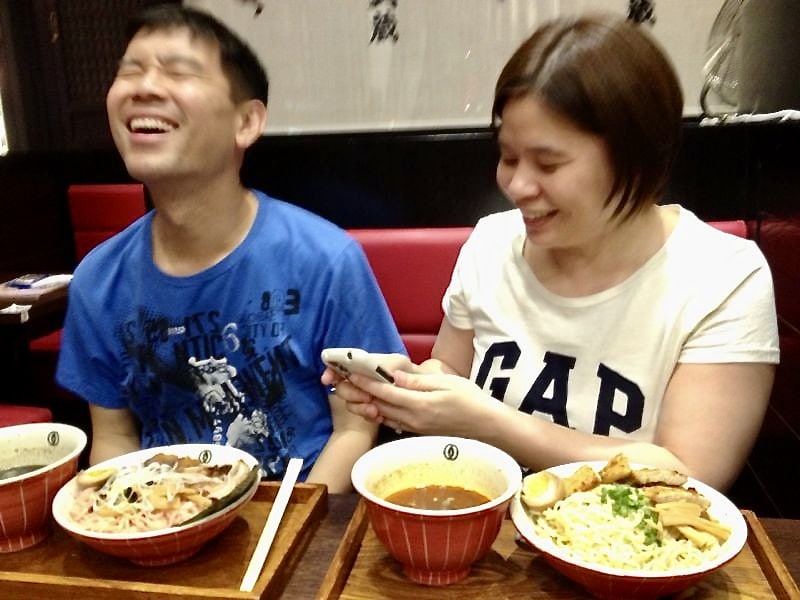
“This was one of the few times Yu Khing really laughed,” said Sharon. He only ate a few mouthfuls of food when she dragged him out for a meal.
“It was like we had joined this secret club of Christians who could rattle off names of sedatives and anti-depressants they had tried. And we knew exactly what each other was saying.”
Hard pressed but not abandoned
Amid all the “crap things” that were happening, Sharon received a mental picture of Yu Khing being wheeled into an operating theatre.
She believes it was from God, and she felt Him say: “There is nothing you can do. Just let Me do what I need to do.”
It brought her comfort, and she hung on to this image.
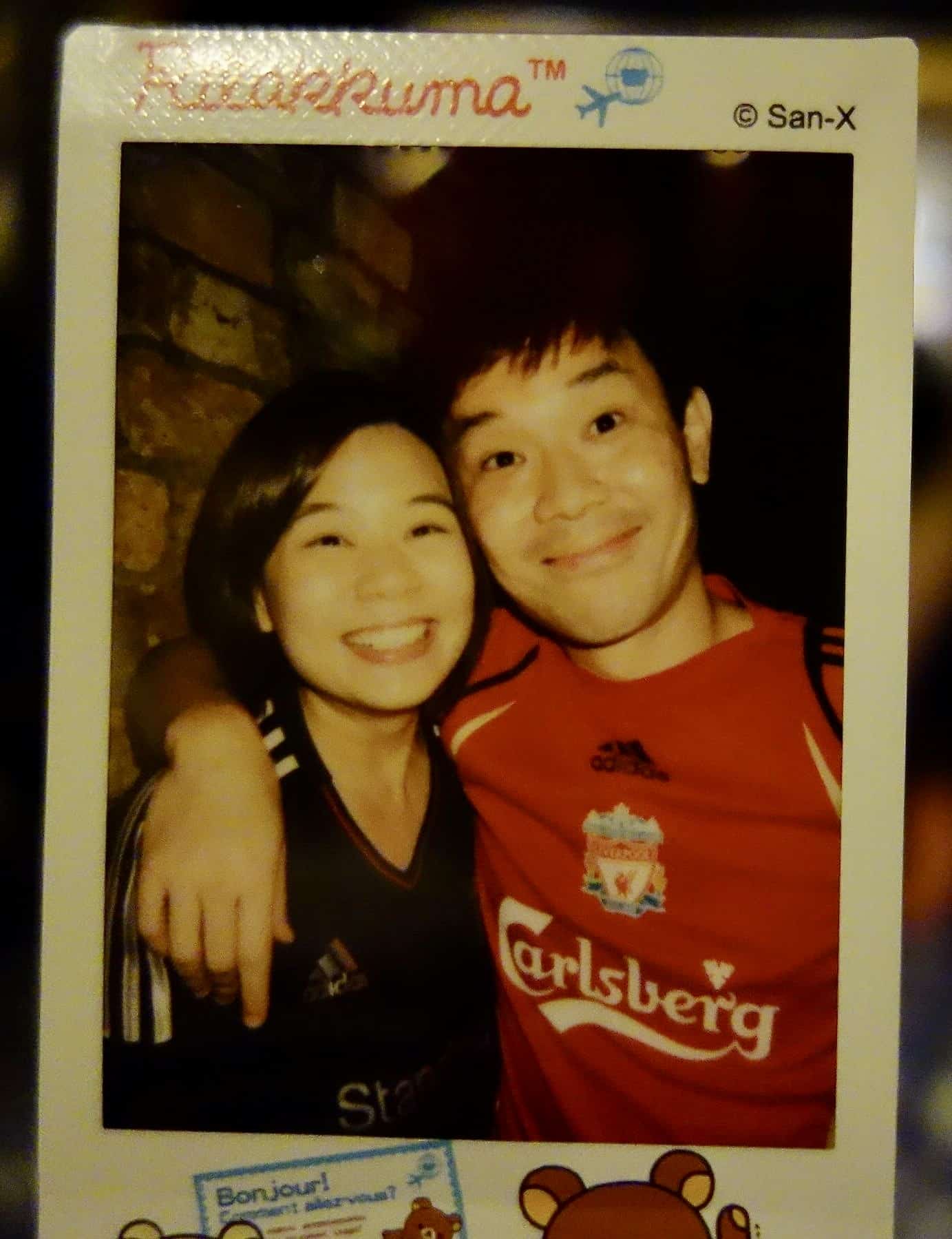
The couple in April 2014, around the time that Yu Khing was easing back into working full-time, after working part-time for a couple of months.
Also comforting was the song Blessings by Laura Story that Sharon’s best friend shared with her.
What if your blessings come through raindrops
What if Your healing comes through tears
What if a thousand sleepless nights are what it takes to know You’re near …
“It aptly described what we were going through. It made me wonder, ‘How many months are 1,000 nights of insomnia to know that God, You’re near?’
“I would feel fear and anxiety, and even get angry or ask, ‘Why and how long is this supposed to last?’
“But constantly, during that whole time, I felt protected. I still felt like God was in our lives, even though He was quiet.
“I never felt abandoned.”
Quoting 2 Corinthians 4:8-9, she said: “We are hard pressed on every side, but not crushed; perplexed, but not in despair; persecuted, but not abandoned; struck down, but not destroyed.”
Staying occupied
Sharon found it helpful to take things one day at a time and release any expectation of things getting better.
“We figured out a rhythm that kept us afloat and focussed on today. We learnt to appreciate that we had a good day, and to stop keeping track of whether Yu Khing was getting more sleep.”
When Yu Khing was on medical leave, Sharon, a corporate trainer, still needed to go to work. She was worried about leaving Yu Khing at home alone, where he didn’t do anything except hang around and nap.
“I prayed, ‘Lord, please don’t let him do anything silly while he is at home alone’,” she said.
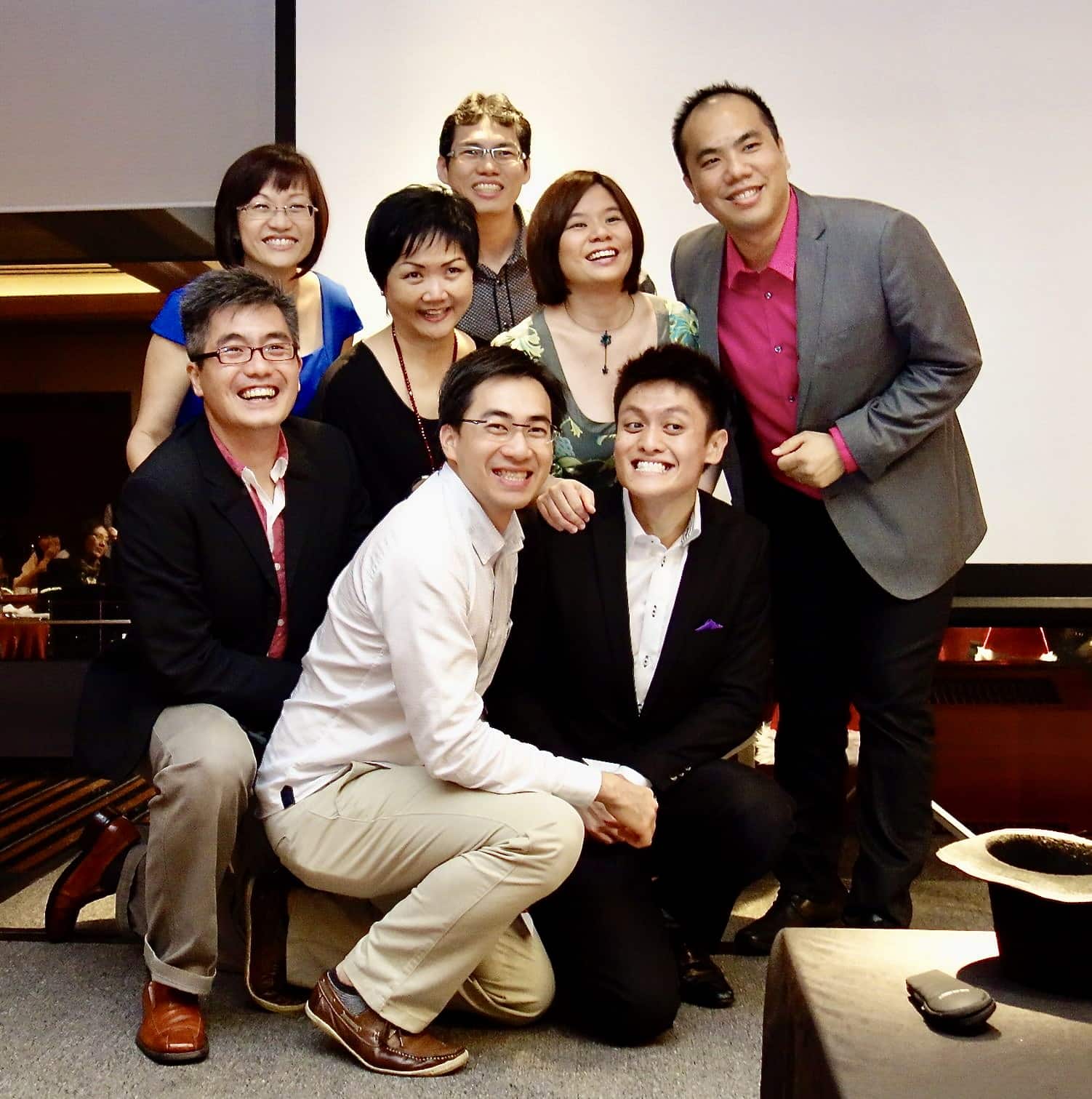
Sharon (in green) with her work community.
Then her boss suggested Sharon bring him to work.
Yu Khing helped out with coordination for their training sessions, and they tapped into his good eye for event photography.
“It is important for a man to be productive. It gave him something that kept him occupied but did not stress him out. There was no pressure on him to perform. He had a responsibility, but it was not overwhelming. It was very helpful in his recovery.”
(Today, Yu Khing’s niche is in performance and theatre photography.)
“Twelve months later, we one day woke up and realised that things were a lot better than six months ago,” said Sharon.
From Toyota to Ferrari
As Yu Khing recovered, Sharon noticed his deeper desire for something more.
“The person that I didn’t recognise as my husband was slowly coming back to normal – but to a ‘normal’ that was no longer satisfying to him,” she said.
Previously, while he was “a committed Christian and a good man”, she had come to accept that he wasn’t as spiritually hungry as she was.
“His good for us doesn’t always mean what’s comfortable for us.”
Now, however, she felt that something had suddenly awakened in him.
“It was the desire to hear God, to finally experience what it means to be working with Him,” she said.
“He became so on fire for God that he wanted to live Matthew 6:33 to its fullest meaning – that is, to ‘seek first His kingdom and His righteousness, and all these things will be given to you as well’.”
This, she recognised, was the continuation of the surgery that God was doing on him.
In 2019, Yu Khing was instrumental in facilitating Alpha Everywhere, an inaugural nationwide campaign that rallies Christians to run the Alpha course all over the island. (Alpha’s non-judgemental, no-pressure approach welcomes all to ask questions about the Christian faith.)
It resulted in more than 600 groups running the course in offices, boardrooms, cafes, homes, churches and more across Singapore.

Yu Khing taught a module on showing God’s love in the workplace at Tung Ling Bible School in 2020.
Other doors opened for Yu Khing to use his skills to show God’s love in the workplace.
He is now a freelance corporate consultant with a special interest in bringing financial education to all and in projects that can make a social impact.
“I can barely keep up in terms of his pursuit of the Kingdom,” said Sharon.
“God was really awakening him. It’s like I married a Toyota and now I’ve got a Ferrari!”
Was it worth it?
“Ten years down the road when people know about our journey and see God’s hand in where Yu Khing is now, we understand better why we went through the ordeal,” said Sharon.
“But I cannot honestly say it makes the suffering worth it. It’s not an experience I would wish on anyone.

Yu Khing standing in for the guest-of-honour presenting certificates at the rehearsal of Sharon’s graduation from Tung Ling Bible School in March 2024.
“It has made us gentler towards other people, and given me a bit more empathy towards them,” said Sharon, who admitted that she was “once very harsh, critical and quick-tempered”.
“I’ve come out of it knowing that God is in charge and He watches over us. His good for us doesn’t always mean what’s comfortable for us. But it’s what will ultimately lead us to become more like Christ.
“This is a hard truth I still struggle to embrace even up till today,” she said, quoting Romans 8:28-29.
“And we know that in all things God works for the good of those who love Him, who have been called according to His purpose. For those whom He foreknew He also predestined to be conformed to the image of His Son, in order that He might be the firstborn among many brothers.”
This story first appeared in Stories of Hope.
Read Salt&Light’s 2021 interview with Yu Khing here.
RELATED STORIES:
“My soul was shattered”: A widower’s journey of grief, strength and hope
We are an independent, non-profit organisation that relies on the generosity of our readers, such as yourself, to continue serving the kingdom. Every dollar donated goes directly back into our editorial coverage.
Would you consider partnering with us in our kingdom work by supporting us financially, either as a one-off donation, or a recurring pledge?
Support Salt&Light


